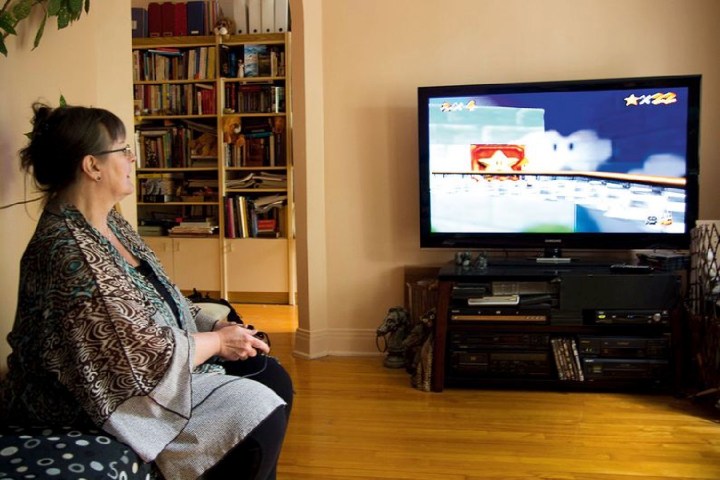
In a new study carried out by researchers from the University of Montreal, scientists examined the link between 3D-platform games and growth in different brains areas among older people. They were particularly interested in the gray matter in a part of the brain called the hippocampus, since this is used for memory building. The loss of gray matter in the hippocampus is associated with neurological diseases, such as Alzheimer’s.
The researchers gathered a group of 33 people between the ages of 55 and 75. These participants were divided into three groups; one which did nothing, one which learned to play piano on a computer, and one tasked with working through the classic N64 launch title Super Mario 64 for 30 minutes per day over six months. All 33 members of the group had brain scans before and after the half-year study to see how their brain changed during that time. The results showed that the most positive gains were experienced by those who had played Mario 64.
“What we found was that the Super Mario 64 training led to increased gray matter in the hippocampus, along with another structure called the cerebellum, which is important for motor control and balance,” Gregory West, a professor in the department of psychology, told Digital Trends.
The piano-playing group also benefited from their practice, although they didn’t experience the same gains of gray matter in the hippocampus.
But does our future brain health rely specifically on playing Mario 64? Yes and no. While it doesn’t have to be that game exclusively, the genre of 3D platformers turns out to be more beneficial than, say, first-person shooters — which previous research from the university shows can actually lower gray matter in the hippocampus.
“It has to do with the design of the game and what it asks gamers to do,” West said. “We hypothesize that 3D platformers are good because they ask people to explore a new environment, and to memorize it. When people do that, they form a cognitive map, meaning an internal representation of the environment, which they can then use to navigate. We know from past research involving both humans and rodents that this promotes activity in the hippocampus.”
A paper describing the work was recently published in the journal PLOS One.


